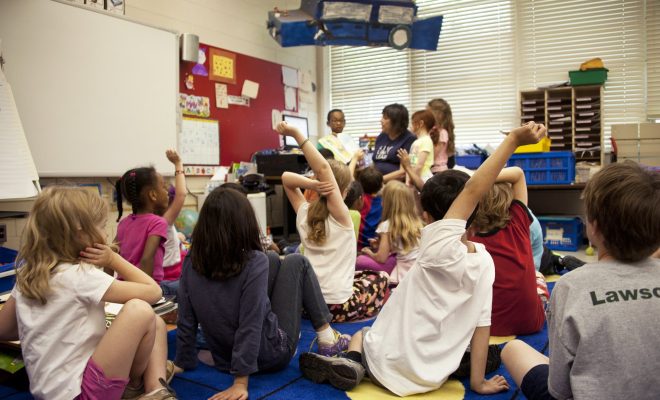Guidelines for Young Children Using Education Technology

Tech is ever pervasive in kids’ lives. They watch videos, play video games, and spend their days on tablets and phones at home. Tech is even becoming prevalent in the education of kids. However, the younger the child, the less screen time they should have. There is also the danger of cyberbullying and online predators. With as much fun and help tech can be in the classroom, educators and administrators must be careful and selective in the educational tech choices for young learners.
Consider these four key steps when evaluating and deciding on a specific educational tech:
- Establish learning goals for the kids.
- Find the hardware or devices you would like to have.
- Examine features and content of the software/program for meeting learning goals.
- Plan how the educational tech will be integrated into the curriculum.
When considering the breadth and scope of tech to use in younger grades, focus on these guiding tips.
Tech, when used appropriately, can be a tool for learning.
Consider these questions: Does the tech help kids learn, engage, express, imagine or explore? Does it supplement learning and not replace learning? Will it help individual learners with their own growth and development? Is it following state educational standards, or is it being used for free time? Is the tech age-appropriate?
Tech is only useful if it responds well to the ages and developmental levels of the kids and is a smart fit for their individual needs, interests, and social and cultural contexts. Are they being actively engaged with the tech? The DOE and the DHHS jointly defined “active use of tech,” referring to what happens in the kid’s mind. Are they gaining insights, making associations, or creating their own content and materials? These are important questions to ponder since much of the tech aimed at preschoolers and toddlers doesn’t have this proven research behind it.
One thing to remember about the proper use of educational tech, especially for younger learners, is the need to keep them safe and secure. The Children’s Online Privacy Protection Act (COPPA) protects kids under 13 by requiring certain apps or websites to necessitate verifiable parental consent. Schools must remember that any info collected from a kid, such as photos or voice recordings, must be protected with security measures. Parents must provide consent to sign learners up for online learning programs at school. The Family Educational Rights and Privacy Act (FERPA) also helps protect kids’ privacy online when technology is used at school.
Tech should be used to increase access to learning opportunities for all kids.
Is there tech for learners to use if they don’t have the resources at home? Are you utilizing tech to take advantage of virtual field trips when physical field trips aren’t part of the school budget? Does the tech encourage global learning and engaging in different cultures? How does the tech support STEAM and early learning?
As mentioned before, tech shouldn’t replace learning; it should expand learning. If there isn’t a purpose to the tech, or some learners can’t access it, it isn’t a good choice.
Tech may be used to strengthen relationships among parents, families, early educators, and young kids.
Does the tech encourage communication between staff and parents of the learners? Can parents access the tech being used in the classroom? Does the tech help parents become more involved in the school?
Try to include the learners’ families with the tech that you use in the classroom. Make sure you are transparent about what tech is used in your classroom. Is there a version that they can download or use at home to continue the learning process?
Tech is more effective for learning when adults and peers interact or co-view with young kids.
Are learners left alone with the tech, or are they guided by an adult? Does the tech encourage social learning and skills? Are parents or educators encouraging active use of more passive tech? Are parents or educators discussing the content or goals for using the tech before learners use it? Do parents or educators view the content with learners and interact at the moment? After using the tech, do educators or parents engage the kids in a de-briefing or extended learning activity?
Tech use for younger learners is great—it encourages the inclusion of STEAM, mastering skills needed in later education, and making new learning opportunities. Just remember that tech is best used in younger classrooms when co-viewed and engaged with an adult. But, don’t forget that physical activity and unstructured play are important for younger learners too.






